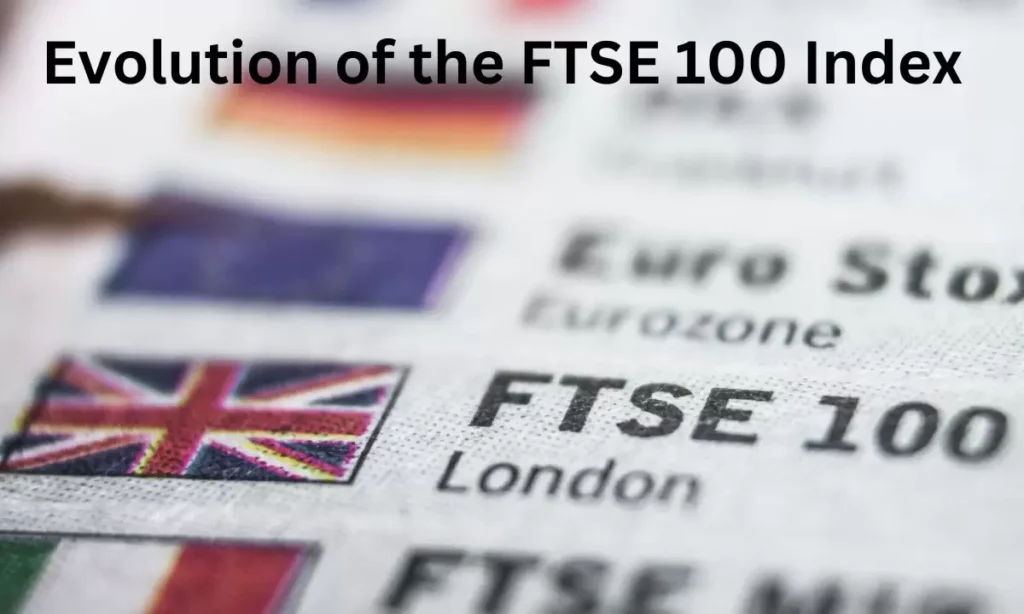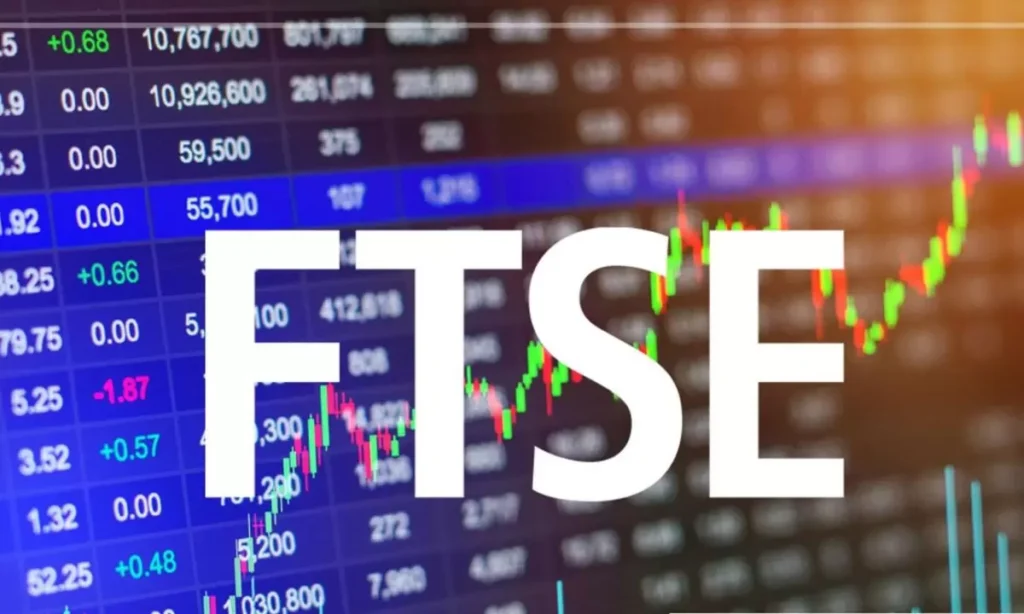This report aims to identify financial technology opportunities among FTSE 100 listed companies. The FTSE 100 index tracks the performance of the largest UK firms and the financial sector makes up a significant weighting.
With the rise of fintech revolutionizing banking, payments and investments this analysis will examine how FTSE listed financial institutions are developing innovative new digital capabilities to unlock additional growth potential. The goal is to highlight examples of industry leaders leveraging technologies like AI blockchain and cloud to transform their business models for the future.
Key Takeaways
- Several FTSE 100 financial firms are innovating successfully with financial technology to unlock new revenue streams and transform customer experiences.
- Adoption of artificial intelligence, blockchain, cloud computing and other emerging technologies is enhancing risk management improving operational efficiency and enabling new digital services.
- Collaboration with fintech startups is helping traditional financial players explore new business models beyond their core offerings.
- Data analytics capabilities are proving crucial for personalized recommendations predictive insights and facilitating open banking trends.
- Early fintech investment and leadership is positioning some FTSE 100 companies for strategic advantages over competitors slow to embrace digital transformation.
- Regulatory openness to innovation is encouraging experimentation while protecting consumers and maintaining financial stability.
- Fintech remains key to engaging younger customer segments and maintaining relevance in an increasingly digital financial world.
- Challenges around talent legacy systems and cybersecurity must be addressed for long term fintech success.
The Rise of Fintech
Fintech has seen tremendous growth in recent years. New startups are using technology to change how we pay invest and borrow. People want faster more convenient options. They turn to smartphones for easy access to services. This has disrupted traditional banks and financial companies. Where once large banks dominated now fintech players are gaining customers. Younger generations especially adopt new financial apps.
They care less about old institutions. New companies offer what people increasingly want speed mobility lower costs. Fintech’s rise looks set to keep transforming personal finances for many more years. The United Kingdom especially has emerged as a data innovation center. FTSE 100 Fintechzoom has taken note of developing progress and the magnitude of data innovation startups such as PayPal Revoult and others that have made their brand in the business.
Evolution of the FTSE 100 Index
When first established the index was comprised mainly of traditional industrial giants. However as technology became increasingly important digital and software companies began entering the ranks of the FTSE 100.

Foundation
The FTSE 100 indicator was instituted on January 3rd, 1984 by the Monetary Times and London Stock Trade as the flagship for most considerable business stakes exchanged on the LSE.
It symbolizes the preeminent one hundred publicly exchanged UK corporations as per industry valuation detailed on the London Stock Exchange. The composition evolves to continuously reflect shifts in the UK economy and remain a bellwether of national business performance.
Operator
The FTSE 100 directory is operated by the London Stock Commerce. It oversees maintenance and regular reviews to ensure composition accuracy.
Calculation
The FTSE 100 list is determined each moment when the commercial center is accessible and is publicized in genuine time. This frequent updating provides very current performance figures for traders.
Constituents
The FTSE 100 comprises the top 100 organizations within the UK that are the biggest and have full market worth. It aims to represent the top performers that have the greatest economic impact on the country.
Sectors
The FTSE 100 sectors have 32 categories. The top three sectors by marketplace importance are medicinal sciences gas and petroleum. These represent some of the most significant industries for market value in the UK commercial scene.
Weighting
The FTSE 100 index is weighted by free float capitalization so that the bigger corporations with more of their shares drifting have an additional effect on the list than smaller companies. This ensures the index precisely mirrors the true market influence of its constituent members at any moment in time.
Record Values

The FTSE 100 list has achieved its loftiest record values. The highest concluding worth was 8,023.87 achieved on 22 April 2024. On the subsequent day the maximum mid exchange worth touched was 8,075.00 demonstrating new peaks for the important benchmark. With continuing advances analysts will eagerly await whether these new heights can be surpassed in the coming months.
FTSE 100 Fintechzoom | A Comprehensive Guide
The FTSE 100 houses quite a few engaging fintech businesses. These firms are at the cutting edge of financial engineering seeking to revolutionize how we utilize and put resources. From moving online payments to budgeting apps and investing platforms fintechs are developing cool new solutions to everyday financial tasks. It’s fascinating to see which fintech startups scale rapidly and get added to the exclusive FTSE 100 list.
Being included in the FTSE 100 index brings much prestige and influence. It shows a fintech company has grown into one of the largest in the UK public market. This can help them attract more customers and buyers. For people seeing revolutionary fintechs in the FTSE a hundred Fintechzoom underscores how plenty this vibrant enterprise is growing and disrupting conventional finance. Young entrepreneurs must be amazed if their company one day joins the ranks of financial powerhouses in the index.
Top Fintech Companies in the FTSE 100 Fintechzoom

The FTSE 100 fiscal innovations directory incorporates numerous well renowned corporations that are detailed below. Keeping track of which players dominate this pioneering sector offers keen insight into the evolving financial landscape.
Adyen
Adyen is a leading payments platform based in Amsterdam. The company processes transactions for large businesses across borders and currencies.
Its technical insights help merchants better understand their customers and drive global growth. As a FTSE 100 listed company Adyen continues to see strong revenues from facilitating online and in store payments. Both merchants and investors value its single platform that supports many regions and payment methods worldwide.
Revolut
Revolut originated as an electronic counterbalance to financial accounts in the UK. It currently furnishes money transferal exchanging and crypto foreign money facilities to in excess of 20 million patrons globally. Companies consistently add more features based on customer demands.
This British fintech unicorn’s success led to an LA funding round valuing it over $30 billion. Listing on the FTSE 100 could be next if rapid growth keeps accelerating from its app based financial products and services.
Worldpay (FIS)
Worldpay started as a payments processor and rapidly grew via strategic acquisitions. It now operates as a division of FIS a leading global fintech company. The combined powerhouse provides merchants with innovative transaction technologies.
Listed on the FTSE 100 FIS continues merging traditional finance with emerging platforms. Both merchants and investors trust it to securely enable digital payments worldwide across many sectors of commerce.
TransferWise
TransferWise is an abroad pecuniary transmission provider founded in London. It permits patrons to transmit assets between lands at interbank substitution rates conserving money on financial institution charges.
As a prominent fintech firm they could be a candidate for FTSE 100 inclusion if they continue growing steadily. This would give their cost cutting mission more visibility and prestige on the world stage.
Flutter Entertainment (FLTR)
Flutter Entertainment owns several leading online betting brands. It generates revenue from sports betting gaming and fantasy sports platforms used globally.
Listed on the FTSE 100 Flutter continues expanding its diverse offerings and customer base internationally. As the online gaming area increases additional unification may persist across the area.
London Stock Exchange Group
The London Stock Exchange Group owns iconic UK exchanges. It provides listing trading and market data infrastructure for the London markets.
As a FTSE 100 constituent LSEG influences global financial systems. The group aims to modernize trading technologies and pursue acquisitions to expand its reach worldwide.
Exploring Fintech Market Indices

Fintech is growing rapidly all over the world. To better understand this exciting sector various index track companies are innovating in financial technology. Looking at indices gives a snapshot of which fintechs are leading in areas like payments investments and blockchain. It’s fascinating to see startups grow and get added to prestigious market lists.
Exploring the constituents of fintech indices is a great way to discover new companies. You may find the next big thing disrupting an entrenched industry. Reading about which innovative firms are thriving also provides clues to future trends. Overall indices celebrating financial technology pioneers make the evolving world of fintech more accessible and enjoyable to observe.
S&P Dow Jones Fintech Index
The S&P Dow Jones Fintech Index tracks major fintech companies globally. It aims to reflect the stock investment performance of firms leading disruption in financial services through technology. Both established corporations and exciting startups can be included based on revenue exposure.
By following this diverse index investors see which fintech business models are most impactful.
From digital payments to robo advisors the index highlights sectors transforming personal finance the most. It’s also interesting to observe which regions or countries are powering particular fintech sub trends over time. The index gives insights into where growth in financial technology innovation may accelerate next.
STOXX Global Fintech Index
The STOXX Global Fintech Index tracks companies from around the world harnessing technology to enhance financial services. It aims to capture firms transforming areas like banking insurance and investing through innovation. Both established names and exciting new startups involved in financial technology are included.
By following this index anyone can explore which sub sectors within fintech like payments security or lending are experiencing the most momentum. It’s intriguing to see which global powerhouses and nimble startups are collaborating or competing to build the financial systems of the future. The index sheds light on how boundaries between industries may continue blurring through new technologies.
Nasdaq Financial Technology Index

The Nasdaq FinTech Index tracks companies using tech to transform finance like apps for money management trading payments and loans. It aims to profit from tech improving financial services. The index gives investors easy access to this sector’s growth.
Some well known names provide payments investing apps or lending sites. But also includes startups pioneering new ideas like blockchain for banks or AI for analyzing risks. The index allows people to benefit from tech advances shaping tomorrow’s financial world.
Advantages of Tracking FTSE 100 Fintechzoom Market Indices
- Gain exposure to a diverse range of leading UK financial technology companies across various sub sectors like payments lending exchanges etc. through a single investment.
- Benefit from the overall success of the fintech industry without needing to selectively pick individual companies that may perform well or poorly.
- Follows the top 100 fintech businesses listed on the London Stock Exchange providing a balanced large cap representation of the sector.
- FTSE Group independently verifies that component companies meet defined criteria for revenue scale and growth removing research work for investors.
- Offers a simple way to invest in this promising fast paced industry transforming financial services and transactions through digital innovation.
- Monitoring the index’s performance allows seeing how the entire UK fintech market is faring rather than individual stock ups and downs.
Investing in FTSE 100 Fintechzoom Companies
The fintech industry is rapidly changing how people manage their money. The FTSE 100 Fintechzoom index gives everyone a way to share in the success of these innovative companies. It combines emerging leaders testing new ideas with established names growing in fintech. Your investment can benefit from the entire sector’s promising future all in one simple fund.
Many fintech firms are developing apps and services people use every day without even realizing it. The FTSE index supports the entrepreneurs creating tools that make managing money easier and more convenient for all. As technology further transforms banking and payments your investment will ride trends shaping how coming generations will handle their finances.
Value Investment
Value investors look for solid companies trading at prices lower than their real worth. They search through all types of businesses to find those currently undervalued by the market.
By investing in these gems trading for less than their value gains can be made as the true prices are realized. A value approach means not chasing the most exciting growth stories. It focuses on businesses with real assets steady cash flows or turnaround potential.
Finding companies the public has wrongly misjudged offers chances for high returns waiting to be unlocked over time. Patience is key as values are sure to shine through for dedicated value investors.
Pros
- Finds undervalued companies that can deliver higher returns as the share price corrects to their real worth.
- Emphasizes risk protection by investing in firms with stable cash flows and surplus assets on the books.
- Suits patient investors focused on the long term avoiding short term market swings and speculation.
- Systematic approach allows value investors to take advantage of panic selling and market overreactions.
Cons
- Requires extensive research to carefully analyze company fundamentals and correctly identify undervalued situations.
- Turnarounds can take time testing investors patience as value may not be immediately recognized by the market.
- Past successes are no guarantee of future gains if the perceived value was overestimated.
- Potential for missing out on strong performers in a rising market as value stocks lag glamor growth names.
Growth Investment
Growth investors aim to ride the success of booming companies expanding rapidly. They target firms in sectors with lots of potential like technology that are increasing earnings quickly. By believing in a company’s prospects growth stock picks can deliver high returns over the long haul.
Many growth companies are still working to turn profits but have great ideas and cutting edge products. The goal is to recognize these winners early as they emerge. If choosing growth leaders of tomorrow wisely reinvested dividends and share price gains might significantly boost anyone’s investments in the future.
Pros
- Allows getting in early on companies disrupting industries and capitalizing on big long term opportunities.
- Exciting to support emerging innovators developing new technologies.
- High flying growth stocks have potential for strong returns if bets pay off.
- Reinvested dividends can exponentially increase gains over decades.
Cons
- Greater risk of losses if projections don’t materialize or competition arises.
- Large losses possible from overpaying for hype without substance.
- Volatility as market sentiment on young companies fluctuates wildly.
- Requires correctly predicting winners in a sea of options and staying power through downturns.
- Performance depends on constantly monitoring companies for signs of slowing growth.
- Missing profits if sales/earnings growth decelerates below expectations.
- Returns reliant on perfectly timing purchases and sales over years.
- Growth illusions possible from aggressive accounting or one off gains.
Dividend Investment
Dividend investors love companies who share profits consistently. By picking strong brands paying regular dividends returns come from both rising share prices and quarterly payouts. Over the long run reinvested dividends help snowball initial investments into much larger totals.
Rather than chasing short term trends the focus is on dependable enterprises who stand the test of time. History shows businesses that reward shareholders through good times and bad tend to be well managed and treat investors well. For those seeking steady income streams dividends have long been a favorite strategy.
Pros
- Provides a regular income from quarterly payouts that can be spent or reinvested.
- Stable established brands ensure reliable cash flows to maintain dividend levels.
- Lessens portfolio risk through diversification across many dividend paying sectors.
- Reinvested dividends acquire more shares over time magnifying total returns.
Cons
- Past dividends are not guaranteed depending on a company’s fluctuating fortunes.
- May forgo larger gains from non dividend growth companies during bull markets.
- Requires continuously monitoring companies for any erosion in financial strength.
- Companies may reduce income if they cut or suspend their dividend payments.
- Emphasis on yield could lead to overpaying for marginally profitable stocks.
Tips for Investors Investing in FTSE 100 Fintechzoom

- Research different fintech sub sectors like payments investing apps blockchain etc. to identify trends shaping tomorrow.
- Consider a company’s addressed market size and growth potential as conventional finance changes.
- Check financials for rising revenues and strength to keep innovating as competition increases.
- Reviews from analysts following the industry can highlight promising investment strategies.
- Invest for the long run as industry transformation may not reward impatience.
- Rebalance your portfolio periodically to maintain exposure levels while trimming winners.
- Sign up for company announcements keeping you informed on new partnerships products.
- Diversify across established blue chips and earlier stage startups for a balanced approach.
- Set price or dividend yield targets for profit taking as valuations may get ahead of progress.
- Dollar cost average by investing regular sums to avoid market timing stresses.
Global Fintech Trends | How the FTSE 100 Compares to Other International Markets

The FTSE 100 houses many innovative firms transforming UK finance. However exciting global trends also unfold elsewhere. While London’s equity capital supports large players agile upstarts thrive abroad. Israel and China lead with advanced payment solutions. India’s unique ID system inspires digital lending startups. Other hubs emerge too. Across the developing world fintech facilitates financial inclusion by bypassing old barriers.
In America sector giants compete but regulation fosters disruptors. Singapore works to integrate ASEAN economies. Everywhere mobilized consumers prompt swift change but the FTSE benefits from first mover firms addressing their needs. A truly diversified portfolio captures opportunities wherever tomorrow’s leaders access capital to scale.
Comparison of the FTSE 100 with other international markets
- The FTSE 100 provides exposure to large established UK fintech firms leading transformation in payments investing apps etc.
- international markets see more venture funding and IPOs for agile startups testing bolder new ideas in areas like blockchain and AI driven lending.
- Emerging hubs in Israel China and India produce major advances in digital payments identity solutions powering financial inclusion.
- America’s mix of competitive incumbents and nurturing regulatory sandbox models spawns global fintech leaders at scale.
- Other regions like Southeast Asia and Africa benefit from mobility and inclusive products tailoring finance to local needs ahead of legacy systems.
- A globally diversified portfolio balances large FTSE 100 companies with chances to invest early in tomorrow’s innovators emerging worldwide outside UK market caps.
- Regular evaluation ensures exposure adjusts dynamically as the locus of disruption shifts between sectors and international hubs over time.
- Multi market approach strengthens resilience and opportunities for participating in fintech’s constant reinvention across borders.
Opportunities and Challenges of Global Fintech Investment
Investors may encounter numerous struggles when partaking in worldwide digital banking finance. In spite of this magnificent prospects arise to amass considerable increases.
Opportunities
Access cutting edge innovation: Investing globally allows ventures to get in early supporting fintech pioneers developing revolutionary ideas that may transform industries.
Tremendous growth potential: Fintech is a fast growing sector around the world opening opportunities to profit from the expansion of digital financial services across borders.
Diversification benefits: A diversified global portfolio mitigates risks compared to investing only locally as successes in different markets can offset weaknesses anywhere.
New consumer adoptions: More tech savvy populations in emerging markets increasingly adopt fintech representing huge untapped consumer bases for early movers.
Challenges
Regulatory complexities: Varying regulations in international markets trends like privacy laws can be tricky for firms to navigate uniformly across borders.
Currency volatility: Fluctuations in foreign exchange rates may impact investment value for holdings in overseas fintech companies.
Information disadvantages: It is harder for ventures overseas to stay perfectly informed of local conditions cultural factors and competitive dynamics.
Protectionism risks: Governments may favor domestic digital finance industries through subsidies procurement practices or data residency rules affecting foreign participants.
FAQ’s
Conclusion
This guide has planned to furnish investors with understanding into unlocking the potential of FTSE 100 Fintechzoom corporations. By realizing the patterns reshaping finance evaluating openings both in the UK and globally and staying abreast of new evolutions persons can take advantage from the promising forthcoming of this innovative sector. Following the strategies discussed helps tap into the immense possibilities of this dynamic industry as it continues transforming the way we manage money.
